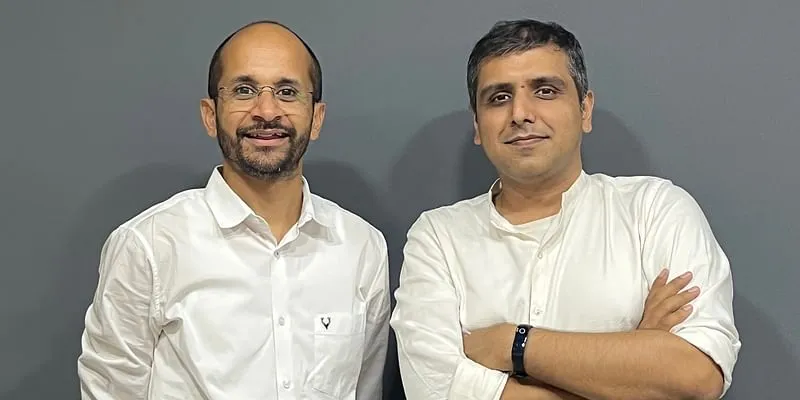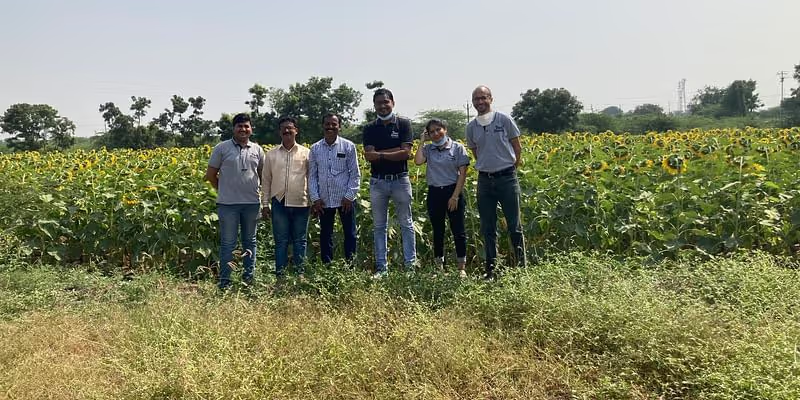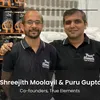[Sustainability Agenda] Here’s how D2C brand True Elements is working towards a cleaner planet
D2C food brand True Elements, which offers healthy breakfast and snacks, is working towards a greener planet by following sustainable practices.
Being a clean and healthy brand is not enough if we don’t take measures to protect the environment, believes Puru Gupta, Co-founder and CEO, .
Hence, True Elements, a D2C brand offering healthy breakfast and snacks, is ensuring sustainable practices are set in place to work towards a greener planet.
Founded by Puru and Sreejith Moolayil in 2014, True Elements has been certified as both ‘Clean Label’ and ‘100 percent wholegrain’ by leading US-based non-profit organisations. The company claims it is driven by providing ‘True Nutrition’ with ‘True Transparency’ and ‘True Sustainability’.

Sreejith Moolayil (L)- Co Founder & COO and Puru Gupta - Co-Founder & CEO at True Elements
“What we do today and in the past is being anchored with sustainability. The larger objective was if we are to stand for our customers, then everything that impacts the decisions should be in line with the customers,” Puru tells SocialStory.
True Elements is re-charting the ethos of home-grown food businesses and is being a responsible, sustainable, and conscious startup.
With a robust product innovation pipeline, rapidly increasing offline distribution in both domestic and international geographies, increasing brand awareness and salience, and high repeat rates of over 65 percent, it is important to look at sustainability along the way.
Packaging and recycling
While sustainability has been a key focus area for the brand since the beginning, its first step towards the same was plastic-free packaging of food.
According to Puru, packaging is the biggest impediment in the food space. True Elements started with brown packaging--one that is biodegradable. However, after about 1.5 years, the team realised the commercial side to it.
Later, the brand came up with a recycling technique where the consumers can send all their plastic packets back with the click of a button, and the packets are recycled within the facility itself. To further promote sustainability, the biofuels from recycling plastic are then distributed to neighbouring villages in Pune in the form of cooking oils.
“We, as a brand, are doing our small part of being sustainable by following ZERO waste. Our agri waste is converted into manure and the production waste is recycled. After enjoying the goodness of our products, return the empty packets back to us for recycling and get true cash for your effort. Recycle the ‘trash to earn some cash’,” says the co-founder.
The company claims to have recycled 866 kg of plastic till date and has been able to achieve about 5,196 kg reduction in carbon dioxide emission.
Other measures
The team also produces biodiesel from recycled packaging and uses it to run the generators. Meanwhile, the team is also looking at solar energy for electricity.

True Element's rolled oats and berries
With an aim to reduce the carbon footprint, the True Elements team engages with local farmers directly and sources the ingredients locally using sustainable and less GHG emission crops, etc.
This initiative further claims to have boosted sustainable and local agriculture. Expanding more on the ingredients used, Puru says,
“Millets give more nutrients and require less water for cultivation. About 30 percent of True Elements products contain millets, and the millet percentage varies from 12 to 80 percent in our products (up to 2.5 times less than rice). And since there is no use of chemicals in the products, effluent/waste water from our factory has minimal residues.”
Additionally, excess food products are not wasted or burned.
Instead, they are given to organisations and animal shelters that the brand has partnered with.
Sustainable future
While sustainability was on the agenda of the company when it was started, it still faces challenges in educating customers on the same.
“We had to figure out a way in which the whole communication has to be precise on the food and the brand as well has to help understand the merits of it. A way in which the customers do not get confused on what we are selling,” Puru explains.
In terms of cost, Puru feels that being smartly sustainable is cost-effective. While there will be operating costs for generational operations, these expenses will add value if one is doing something for the planet alongside.

Co- founder Sreejith Moolayil with the team on a farm for the contract farming initiative
Today, many brands like True Elements call themselves organic or sustainable. Araku Coffee India, a sustainable coffee brand, has helped convert the once-barren Araku Valley in Andhra Pradesh into a lush, green biosphere by enrolling the Adivasi communities in the region.
Similarly, Paul and Mike, a homegrown chocolate brand, is already on the verge of fulfilling rather ambitious goals when it comes to sustainability. It aims to be carbon positive by 2023.
“In the end, if you are selling a brand, it should be something you should be proud of telling the world,” Puru concludes.
Edited by Megha Reddy

![[Sustainability Agenda] Here’s how D2C brand True Elements is working towards a cleaner planet](https://images.yourstory.com/cs/5/79900dd0d91311e8a16045a90309d734/trueelementsfeat-1654221588153.jpg?mode=crop&crop=faces&ar=2%3A1&format=auto&w=1920&q=75)

![[Sustainability Agenda] This eco-friendly Chennai startup sells over 1 lakh bamboo toothbrushes in a quarter](https://images.yourstory.com/cs/5/98c65090592f11ea9f62339ce853ca75/SS-30-1629891899755.png?fm=png&auto=format&h=100&w=100&crop=entropy&fit=crop)




